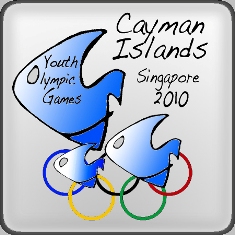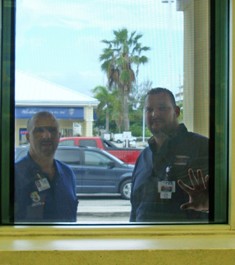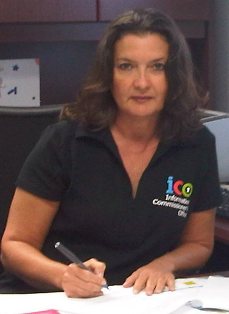Archive for August 8th, 2010

Cayman teens to compete in 1st youth Olympics
 (CNS): A team of Cayman’s young aquatic athletes will be heading to Singapore on Tuesday for the inaugural Youth Olympic Games (YOG), which takes place Saturday 14 August until 26 August. The Singapore 2010 Youth Olympic Games will see 5,000 athletes and officials from the 205 National Olympic Committees (NOCs) running, throwing , jumping and riding into the history books. Watched by an estimated 1,200 media representatives, more than 370,000 spectators and assisted by 20,000 local and international volunteers, the athletes — aged between 14 and 18 years — will compete in 26 sports and take part in Culture and Education Programme. The Cayman Islands Olympic team will participate in sailing and swimming.
(CNS): A team of Cayman’s young aquatic athletes will be heading to Singapore on Tuesday for the inaugural Youth Olympic Games (YOG), which takes place Saturday 14 August until 26 August. The Singapore 2010 Youth Olympic Games will see 5,000 athletes and officials from the 205 National Olympic Committees (NOCs) running, throwing , jumping and riding into the history books. Watched by an estimated 1,200 media representatives, more than 370,000 spectators and assisted by 20,000 local and international volunteers, the athletes — aged between 14 and 18 years — will compete in 26 sports and take part in Culture and Education Programme. The Cayman Islands Olympic team will participate in sailing and swimming.
Port audit stirs up denials
(CNS): Updated – A government ministry has denied accusations made by the Internal Audit Unit in a report it conducted around ten months ago about shop leases at the government owned Royal Watler cruise terminal. The report suggested that 13 out of 14 tenants were operating without leases and that over $200,000 was owed to government in outstanding rent. The audit unit said that Lands & Survey needed to issue the missing lease agreements and the Port needed to chase the money. The ministry in question claims, however, that the audit “contains some serious inaccuracies” and leases had been issued by Lands & Survey. James Parsons, the financial director of the Port Authority, told CNS Mondaymorning that all outstanding rents have now been collected.

Our new dawn
The Cayman economic explosion began in the late seventies when, simultaneously, banking, tourism and development (construction) began to grow at such a rapid pace our inability to supply the high demand for labour for these industries became a threat. New immigration
legislation and the “Protection Board” were introduced and the economic pull factor facilitated the rest creating a fourth industry, Labour Trade.
Very quickly, the land scarcity was identified and George Town and Seven Mile Beach became the commercial zones for banking and tourism. However, labour also needed housing and the property in West Bay was soon sold to facilitate this. Caymanian land ownership began to shrink
as the indigenous population exchanged the land for cash, slowing only as a result of the uncertainty as it related to the work permit holders ability to obtain citizenship. By the late eighties, few prominent Caymanians remained as major land owners, those remaining were in Savannah, Bodden Town, North Side and East End.
At the turn of the century, the multicultural social issues were at a boiling point and nearing eruption, not only locally but also from the UK as they proceeded to issue a “White Paper” outlining a range of discussion topics, including the advancement of our constitution,
citizenship for work permit holders, a conservation bill and sustainable development. No longer would we be allowed to sit back and ignore these pressing issues. If we failed to act, the UK would act for us by order in Cabinet.
And so, one year after the 2000 election there was political instability for the second time in our history and political parties were introduced as a result. Additionally, during this period, persons
who had been working and living in the country for extended periods were granted status by Cabinet, causing the multicultural social issues to erupt.
This brings me to the point of this paper.
It is now ten years following the mass status grants and large portions of the Savannah and Bodden Town properties have also been sold. Major housing projects developed to provide home ownership to not only the “new” Caymanian, but also to the decedents of Caymanians
who had sold their land three decades previously. The great “new” social change came from within as citizens relocated in masses to these new homes, bringing cultures from around the island and around the world. No longer were Caymanians relocated to a parcel of land up
or down the street, they were relocating to other districts, primarily, the district of Bodden Town, which has seen and continues to experience unsustainable growth. All of the residents of this district saw their lives turned upside down and viewed the “other” people as strangers.
Sadly, the entire social infrastructure was ill prepared and unable to manage the growth and culture shock, so rather than creating the communities we were all accustom to, we created new communities of strangers. To this day, very few have attempted to address these social issues. Politicians, through their “new” parties, are utilizing their national reach to win support from the new citizen in their constituency. Churches found it difficult to integrate the new citizen and the new citizen longed for the comfort of the church they grew up in. Teachers in schools saw the culture of their schools change overnight as the many varying cultures demanded prominence, lacking the tools to cope; they did what most human beings do under those conditions — some ran away and some shut themselves down.
Of course, when there is instability, the blame game is central to causing further social disruption, and so the “strangers” proceeded to blame each other for the ills they faced. And no one benefited.
What was missing from the new communities? Remember when we were growing up everyone in your neighborhood was our friend? Your parents’ friend? Family? When your parents trusted your neighbor to watch, love and discipline you? When parents got together regularly to “gossip”?
That is what the relocation of the masses caused to be removed from their social order.
It is now time for this country to recognize ALL its citizens.
If we fail or refuse to embrace our neighbor as family, regardless of his/her racial background, we will never advance economically, socially and academically. It is time for us to put the “foreigner”
debate behind us, embrace status holders as Caymanians and respect the contribution of work permit holders. We must not simply become more dependent on each other, we must commit to supporting each other. It is impossible to legislate this and foolish to expect political leadership to direct it.
I believe that the greatest social injustice is the resentment and hatred passed onto children from parents towards others. While the relocation of many occurred very quickly, the reestablishment of the “Caymanian Community” will take time and is best vested in the hands of the children who require guidance from their parents. Now, can the parents learn to never spew words of hatred towards their neighbor in the presence of their children?
It is a new dawn and we must write the new chapter of our history with pride.

Hurricane and crime protection in one
 (CNS): A local security firm is offering a new way to protect against both crime and hurricanes with specialist screens. Security Centre boss, Stuart Bostock said that Crimsafe’s stainless steel security screens can not be cut or kicked in, which provides protection from would be intruders. The screens are also hurricane ratedand have passed Category 4 standardized testing. With the rising crime the screens which were Florida Building Code approved provide an alternative to traditional hurricane shutters.“We’re always looking for new and different security solutions on the market so we can offer our customers the best available products and services," Bostock, President and CEO of The Security Centre said.
(CNS): A local security firm is offering a new way to protect against both crime and hurricanes with specialist screens. Security Centre boss, Stuart Bostock said that Crimsafe’s stainless steel security screens can not be cut or kicked in, which provides protection from would be intruders. The screens are also hurricane ratedand have passed Category 4 standardized testing. With the rising crime the screens which were Florida Building Code approved provide an alternative to traditional hurricane shutters.“We’re always looking for new and different security solutions on the market so we can offer our customers the best available products and services," Bostock, President and CEO of The Security Centre said.

Info boss backs FOI refusal
 (CNS): In her latest appeal ruling the information commissioner has ruled that CINICO is not required to comply with a freedom of information request as it would cost too much. The Cayman Islands National Insurance Company had refused a request for a list of approved in-network providers on the basis that it was vexatious and would unreasonably divert its resources. In her ruling Jennifer Dilbert said that the request was not vexatious but, given the size and cost of producing the list, it would be unreasonable. However, the information boss pointed out concerns she had about procedures during this case, saying it was vital that all parties respect her statutory powers to inspect documentation and investigate the matters before her.
(CNS): In her latest appeal ruling the information commissioner has ruled that CINICO is not required to comply with a freedom of information request as it would cost too much. The Cayman Islands National Insurance Company had refused a request for a list of approved in-network providers on the basis that it was vexatious and would unreasonably divert its resources. In her ruling Jennifer Dilbert said that the request was not vexatious but, given the size and cost of producing the list, it would be unreasonable. However, the information boss pointed out concerns she had about procedures during this case, saying it was vital that all parties respect her statutory powers to inspect documentation and investigate the matters before her.

Net neutrality talks stall in US
 (BBC): US regulators have halted closed-door meetings intended to find a way to make sure all web data is treated equally. The Federal Communications Commission began the meetings after a court limited its net regulation powers. The FCC faced criticism over the meetings by groups that supported the principle known as net neutrality. The FCC decision follows reports that Google and Verizon hatched a separate deal to allow faster speeds for web sites that pay for the privilege. "Any outcome, any deal that doesn’t preserve the freedom and openness of the internet for consumers and entrepreneurs will be unacceptable," said FCC chair Julius Genachowski.
(BBC): US regulators have halted closed-door meetings intended to find a way to make sure all web data is treated equally. The Federal Communications Commission began the meetings after a court limited its net regulation powers. The FCC faced criticism over the meetings by groups that supported the principle known as net neutrality. The FCC decision follows reports that Google and Verizon hatched a separate deal to allow faster speeds for web sites that pay for the privilege. "Any outcome, any deal that doesn’t preserve the freedom and openness of the internet for consumers and entrepreneurs will be unacceptable," said FCC chair Julius Genachowski.